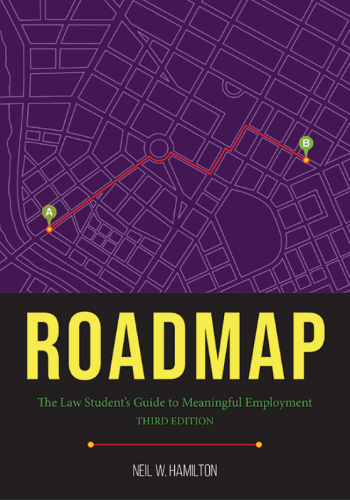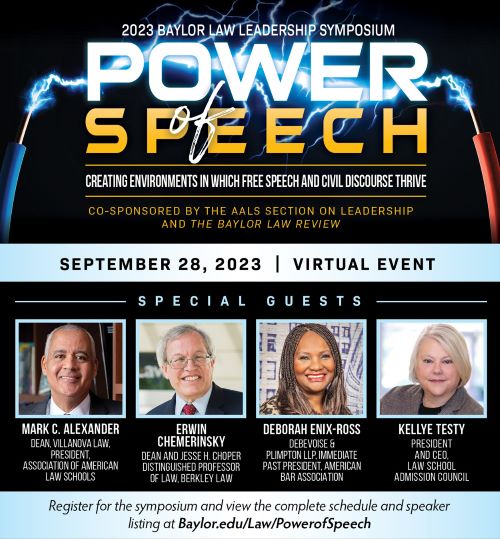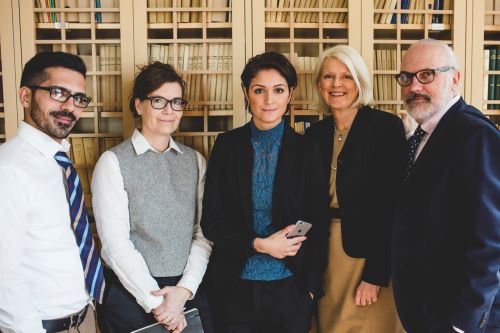James Leipold served as the executive director of NALP (National Association for Law Placement) for over 18 years. He now works as a senior advisor with the Law School Admission Council (LSAC). Leipold wrote a thorough review of Neil Hamilton’s Third Edition of the award-winning book, Roadmap: The Law Student’s Guide to Meaningful Employment, published by the ABA. Leipold’s detailed and insightful review can be found here.
David Grenardo
2023 Baylor Law Leadership Symposium, Power of Speech: Creating Environments in Which Free Speech and Civil Discourse Thrive
By: David A. Grenardo, Professor of Law and Associate Director of the Holloran Center for Ethical Leadership in the Professions, University of St. Thomas School of Law
On Thursday, September 28, 2023, Baylor Law School’s Leadership program, in conjunction with the AALS Leadership Section and Baylor Law Review, will host a symposium titled, “Power of Speech: Creating Environments in Which Free Speech Civil Discourse Thrive.” The symposium features national leaders in legal education and the legal profession, including the following individuals: Erwin Chemerinsky, the Dean and Jesse H. Choper Distinguished Professor of Law at UC Berkeley School of Law; Deborah Enix-Ross of Debevoise & Plimpton LLP, the Immediate Past ABA President; and Mark Alexander, the Arthur J. Kania Dean and Professor of Law at Villanova University Charles Widger School of Law and President of the AALS.
The symposium will also showcase several national prominent leaders in professional identity formation, such as Leah Teague, Professor of Law and Director of the Leadership Development Program at Baylor Law School, Timothy W. Floyd, the Tommy Malone Distinguished Chair in Trial Advocacy and Director of Experiential Education at Mercer University School of Law, and Louis D. Bilionis, Dean Emeritus and Droege Professor of Law at Cincinnati College of Law, who is also a Holloran Center Fellow.
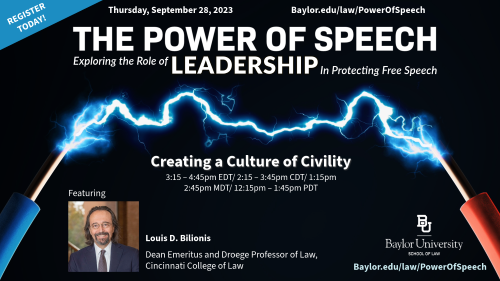
The symposium, which will take place from 12:30 p.m. to 5:00 p.m. Central Time, is completely virtual. The full schedule of the symposium and speaker bios can be found here, and this registration link will allow you to sign up for this timely and enlightening symposium. We hope you can find time to attend some or all of this exciting event.
By: David A. Grenardo, Professor of Law and Associate Director of the Holloran Center for Ethical Leadership in the Professions, University of St. Thomas School of Law
Prentiss Cox, a Professor of Law at the University of Minnesota Law School, previously published Law in Practice, a casebook to teach lawyering skills to first and second-year law students. His latest article, Kill 1L, proposes a bold, yet practical approach to reforming the 1L curriculum and experience to help develop law students into lawyers.
Here is the abstract of Professor Cox’s article:
Law school education has been extensively studied for decades, but changes have been modest. This Article makes the case that fundamental law school reform will not occur until we abolish the central pillar on which it rests—the current conception of the first year of law school, the “1L” experience. Many studies of law school curricula and pedagogy are sharply critical of the education offered, but they pull a punch when it comes to 1L. This Article compares recent data on 1L curricula at almost every U. S. law school with ABA-required law school statements of learning outcomes. The comparison reveals two contrasts: the gap between what is promised students for their legal education and what 1L delivers; and the gap between what is promised students and the actual use of law by attorneys, judges and even law professors in the modern world. The Article proposes a new 1L curriculum that would engage students in the law used by courts and policymakers while decreasing the demands placed on law students by the repetitive, inefficient legacy 1L curriculum.
A link to the article can be found here.
Should you have any questions or comments about the article, please feel free to contact Professor Cox at coxxx211@umn.edu.
Integrating Artificial Intelligence Tools into the Formation of Professional Identity
By: David A. Grenardo, Professor of Law and Associate Director of the Holloran Center for Ethical Leadership in the Professions, University of St. Thomas School of Law
The Holloran Center and the University of St. Thomas Law Journal brought together for the first time 1L and Professional Responsibility casebook authors to discuss ways to implement professional identity formation into the 1L curriculum and Professional Responsibility at the University of St. Thomas Law Journal’s spring 2023 symposium. One of the major reasons for this seminal gathering was to share ideas about professional identity formation amongst law schools from all across the country. Another reason was to generate excellent scholarship that could guide law schools as schools must now comply with the new ABA Standard 303 that requires law schools to provide substantial opportunities for law students to develop their professional identities.
Colleen Medill, the Robert & Joanne Berkshire Family Professor of Law and Director of Undergraduate Academic Programs at the Nebraska College of Law, delivered an amazing presentation at the symposium titled “Writing a Demand Letter: Litigator or Mediator” on a panel that focused on putting students in the role of lawyers, which is one of the ways law students move from law student to lawyer. She also authored an excellent, timely, and innovative article for the symposium issue, Integrating Artificial Intelligence Tools into the Formation of Professional Identity.
Here is the abstract of Professor Medill’s article:
My claim in this Article is that a lawyer’s personal use of artificial intelligence (AI) in the practice of law is now an essential component of a lawyer’s professional identity that must be intentionally developed as a law student before entering the practice of law. After demonstrating the strong connection between the use of AI tools in legal practice, the requirement of lawyer competence, and the formation of professional identity, the Article proposes four “best practices” principles for integrating AI tools with traditional lawyering skills exercises to assist students in the formation of professional identity. The Article concludes with an example that can be used in the first-year Property course.
A link to the article can be found here.
Should you have any questions or comments about the article, please feel free to contact Professor Medill at cmedill2@unl.edu.
An Unexpected Synergy: How Integrating Professional Identity Formation Exercises in a Civil Procedure Course Not Only Help Students Form a Professional Identity but Also Enhance Their Understanding of Civil Procedure
By: David A. Grenardo, Professor of Law and Associate Director of the Holloran Center for Ethical Leadership in the Professions, University of St. Thomas School of Law
Professor Benjamin V. Madison III, Professor of Law and Director of the Center for Professional Formation at Regent University School of Law, authored a pretrial practice casebook, Civil Procedure for All States: A Context and Practice Casebook, which was one of the first casebooks that explicitly and intentionally incorporated professional identity formation as recommended by the Carnegie Institute study Educating Lawyers (2007). Madison presented at the University of St. Thomas Law Journal’s spring 2023 symposium, which brought together 1L and Professional Responsibility casebook authors to discuss how they infuse professional identity formation into the required curriculum. Madison’s latest article, An Unexpected Synergy: How Integrating Professional Identity Formation Exercises in a Civil Procedure Course Not Only Help Students Form a Professional Identity but Also Enhance Their Understanding of Civil Procedure, will be part of that symposium’s issue.
Here is the abstract of the article:
This article demonstrates that integrating professional identity formation exercises in a required course accomplishes multiple goals. The Carnegie report stated, “[l]egal analysis alone is only a partial foundation for developing professional competence and identity.” The report was clear that only the formation of values and the ability to exercise moral judgment would allow students to practice as true professionals. Both first-year and advanced civil procedure courses feature professional identity formation exercises. They present dilemmas litigators face, particularly ones that the Model Rules of Professional Conduct do not answer.
The article describes how the effectiveness of the exercises improved depending on how the professor assigned them. When students read the exercises and discussed them in class, along with cases and other reading, students showed less engagement in the complexity of moral and ethical questions. Conversely, when students wrote reflection papers on the exercises due before the class discussion, they displayed greater discernment than when students did not write reflections. After writing about the exercise, more students recognized that reflective lawyers balance multiple interests and the lawyer’s values in resolving an ethical/moral challenge. The examples explored in the article, as representative of the type of exercises, include various issues that arise in handling a civil suit. The sample exercises include a choice-of-forum decision, a client’s request to serve a defendant in a specific manner, and two discovery scenarios. The first discovery scenario depicts a lawyer deciding whether to set a trial and other deadlines later than necessary and how that affects the client, not to mention the lawyer’s financial gain if on a billable hour engagement. The second discovery example demonstrates efforts to use excessive production of documents to increase the chance that the discovering party misses key documents.
The benefits of the exercises were two-fold. As a routine, graded part of the course, students gained an appreciation for moral and ethical judgments not answered by the Model Rules. The courses’ learning objectives state that by engaging in the exercises, students would develop a professional identity that includes values and a moral compass that will answer questions not addressed by the Model Rules. Therefore, students cultivate values, a moral compass, and the ability to resolve dilemmas they will likely face in practice. An additional benefit was the improved grasp of the rules and doctrines connected to the scenarios. Although intended to promote professional identity development, the exercises also reinforced knowledge of the rules and doctrines that formed the context for the exercises. Hence, students learned these rules and doctrines better than if the exercise were left out.
A link to the article can be found here.
Should you have any questions or comments about the article, please feel free to contact Professor Madison at benjmad@regent.edu.
Breaking Down Siloes and Building Up Students: The Transformational Possibilities of Professional Identity Formation
By: David A. Grenardo, Professor of Law and Associate Director of the Holloran Center for Ethical Leadership in the Professions, University of St. Thomas School of Law
Three national leaders in professional identity formation—Lindsey P. Gustafson, Aric K. Short, and Robin Thorner—came together to author an exceptional article focused on professional identity formation. Their article, Breaking Down Siloes and Building Up Students: The Transformational Possibilities of Professional Identity Formation, will be part of the University of St. Thomas Law Journal’s spring 2023 symposium issue that will explore pedagogies relating to professional identity formation.
Here is the abstract of the article:
Under the ABA’s sequenced approach to implementation of Standard 303(b)(3), schools should now have developed plans for providing opportunities for professional identity formation and should be implementing them. These plans must provide students with an “intentional exploration of the values, guiding principles, and well-being practices considered foundational to successful legal practice.” In addition, these plans should provide for frequent opportunities for development, “during each year of law school and in a variety of courses and co-curricular and professional development activities.”
Because Standard 303(b)(3) is necessarily tied to the unique character, existing structures, and available resources of a law school, each school’s plan will be different. That has been our experience as we have worked as professional identity formation leaders in different roles with varying perspectives: Lindsey Gustafson at the William H. Bowen School of Law, University of Arkansas at Little Rock, is a current Associate Dean for Academic Affairs and a skills and doctrinal professor; Aric Short at the Texas A&M School of Law is a former Associate Dean for Academic Affairs, a doctrinal professor, and currently serves as the Director of the Professionalism and Leadership Program; and Robin Thorner at St. Mary’s University School of Law is an Assistant Dean for Career Strategy, a teaching adjunct, and the current Director of Professional Identity Formation.
In this essay, we hope to emphasize that professional identity formation efforts can occur all across the law school’s operations, from administrative offices to classrooms to voluntary student activities. We also provide specific examples of how schools can be more intentional and explicit as they weave together multiple professional identity formation opportunities for their students. This process takes time and attention, but it creates a powerful whole-building approach to identity formation that not only complies with 303(b)(3), but also best positions our students for a successful, fulfilling, and impactful career in law.
A link to the article can be found here.
Should you have any questions or comments about the article, please feel free to contact any or all of the authors at lpgustafson@ualr.edu, ashort@law.tamu.edu, and rthorner@stmarytx.edu.
Professional Responsibility and Professional Identity Formation in a Community of Practice with Alumni
By: David A. Grenardo, Professor of Law and Associate Director of the Holloran Center for Ethical Leadership in the Professions, University of St. Thomas School of Law
Every time a bell rings, an angel gets its wings…and Neil Hamilton finishes another article. Neil Hamilton, the Holloran Professor of Law and Co-Director of the Holloran Center for Ethical Leadership in the Professions at the University of St. Thomas School of Law, has completed a new professional identity formation article. Hamilton wrote his latest article for the University of St. Thomas Law Journal’s spring 2023 symposium on professional identity formation. Hamilton’s article explores a new approach to the required Professional Responsibility course that provides reasonable coverage of the law of lawyering, legal analysis, and compliance, but also helps each student understand and participate in a community of practice focused on all the discretionary calls of lawyering in the area of the student’s ultimate practice interest. The student sees that legal ethics knowledge and capacities are not just doctrinal knowledge and legal analysis but are also social and situated in a community of practice. The student also sees that many alumni of the law school are successful in the practice of law while living into the values of the law school and the profession, not just compliance with the minimum floor of the law of lawyering. The student will also understand that in any practice area, the experienced lawyers know who can be trusted and who are the jerks. It will be the student’s and new lawyer’s choice which path to take.
Part II(A) of the article first outlines that the ABA Model Rules of Professional Responsibility (adopted by all 50 states with some variation) codify some values of the profession (like competence, diligence, confidentiality, and loyalty) into the law of lawyering with which licensed lawyers must comply. Part II(A) also explains that many of the Rules give discretion to practicing lawyers with respect to choices about conduct above the floor of the Rules. Part II(B) then analyzes the core values in the mission and learning outcomes of some law schools, and in the Preamble to the Model Rules, that help guide each lawyer’s discretionary decision-making. Part III analyzes how communities of practice influence lawyers in making the discretionary calls of lawyering in a way consistent with the profession’s core values. Part IV explores empirical evidence on whether practicing lawyers think their legal education was an effective community of practice fostering their understanding of these core values in making the discretionary calls of lawyering. Part V discusses Hamilton’s own Professional Responsibility course that creates communities of practice with students and alumni to help students understand the importance of the law school’s and the profession’s core values in making the discretionary calls of lawyering.
A link to Hamilton’s article can be found here.
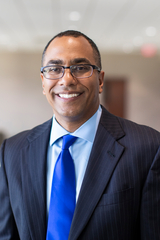
David Grenardo is a Professor of Law and Associate Director of the Holloran Center for Ethical Leadership in the Professions at the University of St. Thomas School of Law.
By: David A. Grenardo, Professor of Law and Associate Director of the Holloran Center for Ethical Leadership in the Professions, University of St. Thomas School of Law
Distinguished Professor of Law Michael Vitiello at McGeorge School of Law, University of the Pacific, is a nationally-recognized expert on criminal law who has been cited by the United States Supreme Court and the California Supreme Court. He is also a member of the American Law Institute. Among the 15 books he has authored, Vitiello’s Civil Procedure Simulations: Bridge to Practice (2d ed. 2023) provides opportunities for professional identity formation of law students. Vitiello presented his latest law review article (he has written over 90), Integrating Professional Identity into the Traditional Classroom, at the University of St. Thomas Law Journal’s spring 2023 symposium that explored pedagogies to support professional identity formation.
Vitiello’s article explores his experience as a Civil Procedure teacher and how attempting to enliven arcane concepts, he almost by necessity adopted simulations into the traditional classroom. The article discusses his Civil Procedure simulations book, which is part of West Academic Press’s Bridge to Practice series. The article discusses several of the activities in the book, most importantly, an extensive discovery simulation activity that students engage in during the course.
Vitiello’s simulations bring the law to life as he, among other things, introduces the class to their client (played by a research assistant) as a part of his simulation, which helps make the practice of law real to the students. Putting law students in the role of lawyer is one of the best ways for them to develop their professional identities. Indeed, the simulation book includes a variety of exercises for students to practice what civil procedure means in various contexts, including motion practice, pleadings, and discovery. Students, for example, draft a complaint in small groups, which mirrors the real world in which lawyers work in teams. Fewer drafted complaints to read also allow the professor time to review and provide meaningful feedback to each group.
By way of further example, after receiving a discovery packet for the plaintiff in the simulation lawsuit, students work in small groups on various discovery activities. Serving as defense counsel, the professor submits various discovery requests and answers their discovery requests. Along the way, students must decide how to handle highly sensitive material that they have in their discovery packet, material that potentially harms their client.
Vitiello’s article explores one of the core lessons about developing a professional identity. As the students discuss among themselves and then with the professor, they must struggle with whether they must hand over a smoking gun, which damages their client’s case. The article explores typical reactions of class members as they realize that their view of the zealous advocate may run afoul of their obligations as officers of the court and may even cross the line between legitimate law practice and obstruction of justice.
Vitiello’s simulations book and article provide tremendous resources to help law students develop their professional identities.

David Grenardo is a Professor of Law and Associate Director of the Holloran Center for Ethical Leadership in the Professions at the University of St. Thomas School of Law.
By: David A. Grenardo, Professor of Law and Associate Director of the Holloran Center for Ethical Leadership in the Professions, University of St. Thomas School of Law
Lou Bilionis, Dean Emeritus and Droege Professor of Law at the University of Cincinnati College of Law, also serves as a Holloran Center Fellow. He has written extensively on professional identity formation, including an open access book published by Cambridge University Press titled Law Student Professional Development and Formation: Bridging Law School, Student, and Employer Goals. His most recent article on professional identity, which is forthcoming in the University of St. Thomas Law Journal, demonstrates how law professors can effectively incorporate professional identity formation into doctrinal classes. He presented this article at the University of St. Thomas Law Journal’s spring 2023 symposium that explored pedagogies to support professional identity formation.
American law schools are paying increased attention to the professional identity formation of their students. The trend should grow now that the American Bar Association’s Section of Legal Education and Admissions to the Bar has revised its accreditation standards to prescribe that “a law school shall provide substantial opportunities to students for … (3) the development of a professional identity.”
As law school faculty and staff proceed, professors who teach traditional doctrinal classes may doubt they can do much if anything differently in their courses to support professional identity formation. Questions about course coverage and their own competency to focus on professional identity formation understandably arise and may give professors pause. Bilionis’ article illustrates how purposeful focus on professional identity formation in a doctrinal course can be done to enrich the educational experience for students. Rather than detracting from the doctrinal work, professional identity formation features can be a multiplier. They can be leveraged to promote the doctrinal learning and the sharpening of cognitive skills traditionally expected in the course, while also contributing positively to the student’s development as a professional in other ways. Importantly, doing so is not difficult and requires no special expertise of the professor.
Bilionis’ article reports on his personal experience since 2016 teaching a basic constitutional law course with professional identity formation as a central feature. The reader will find a model that has delivered positive results for students and the professor alike, and which any professor can employ in any typical doctrinal course. In addition to reviewing strategic considerations, the article digs into the details of what to do and how to do it. It identifies and walks through various components that can be introduced to accent professional identity formation concepts while advancing traditional learning objectives. The components are easily adaptable to suit the needs and preferences of the professor, and faculty interested in experimenting can select one or more for a test run in their classes.
A link to Bilionis’ article can be found here.

David Grenardo is a Professor of Law and Associate Director of the Holloran Center for Ethical Leadership in the Professions at the University of St. Thomas School of Law.
If You’re Looking for Professional Identity Formation Resources, Then You’ve Come to the Right Place
By: David A. Grenardo, Professor of Law and Associate Director of the Holloran Center for Ethical Leadership in the Professions, University of St. Thomas School of Law
The Holloran Center for Ethical Leadership in the Professions at the University of St. Thomas School of Law (Minnesota) strives to share as many resources with others as possible. In an effort to make resources even more accessible, the Holloran Center has revamped its website to deliver those resources in a user-friendly manner.
The home page of the Holloran Center website begins with links (on the right side of the page) to (1) short, useful definitions of professional identity and professional identity formation, (2) three articles that explain the ABA’s changes to its standards 303(b) and (c), and (3) two groundbreaking articles on law students’ well-being.
As you scroll down the home page, four major links can be found under the heading “How to Get Started”: (1) Get to Know the Holloran Center, (2) Review Changes to Standard 303, (3) Explore our Tools and Resources, and (4) See Our Research and Training. Each of these four major categories is discussed below.
The first major link, Get to Know the Holloran Center, takes the user to a page that features the leadership team of the Holloran Center, including its Co-Directors Neil Hamilton and Jerry Organ, along with me, and the Holloran Center Fellows, Barbara Glesner Fines, Kendall Kerew, and Lou Bilionis. It also includes links to pages about Tom Holloran, who is the inspiration and namesake of the Center, along with a Donors and Partners page.
The second major link, Review Changes to Standard 303, leads to a page that includes (1) a list of existing entry ramps for schools to incorporate professional identity formation and (2) a link to an open access book – Law Student Professional Development and Formation: Bridging Law School, Student, and Employer Goals – that provides a straightforward and detailed look at the changes to 303(b) and (c) and suggestions regarding how to comply with those standards, and (3) the introductory materials mentioned above (short definitions of PI and PIF and three short articles about the changes to the ABA standards).
The third major link – Explore our Tools and Resources – brings up three more links on that topic: Learning Outcomes Database; Holloran Competency Milestones; and Professional Development Database.
The Learning Outcomes Database contains a searchable list of all law school learning outcomes that were available on law school websites as of January 2022. The Holloran Center identified those law schools with “basic” learning outcomes – those that recite the language of Standard 302 and nothing more. The Holloran Center also identified those law schools with more robust learning outcomes than required by the language of Standard 302.
The Holloran Competency Milestones are rubrics that describe the various stages of development associated with learning outcomes. In other words, they provide a tool to assess whether (and to what extent) law students are reaching learning outcomes in a variety of areas, including the following:
- Active Listening
- Cultural Competency
- Commitment to Pro Bono
- Good Judgment
- Grit and Resilience
- Growth Mindset
- Integrity
- Leadership
- Professional Communication
- Reflection
- Self-Directedness
- Teamwork/Collaboration
The Professional Development Database list includes 62 first-year, required, law school professional development initiatives based on information from law school websites as of November 2019. This list, as well as the Learning Outcomes Database, are currently being updated by research assistants for the Holloran Center. The updates should be available by September 1, 2023.
The fourth major link, See Our Research and Training, consists of three links itself. The first is the Roadmap for Employment, which is the award-winning book that provides a template for law students to use throughout all three years of law school to be fully prepared to find meaningful employment upon graduation. ABA Books will publish the substantially revised third edition of Roadmap on August 1st of this year; the latest edition is streamlined and even more law-student friendly at 51 pages total.
The second link under Research and Training, Coach Training, offers coaching tips and a guide to perform one-on-one coaching with law students, which is the most effective method to foster each student’s professional growth. The third link contains extensive Research on Professional Formation in multiple areas, such as professional formation overview, the importance of professional formation, promoting student self-direction, fostering a fiduciary mindset, assessing student professional development, legal education observations, and law student well-being and satisfaction.
As you scroll down the home page, there is a link to the Holloran Center Professional Identity Implementation Blog, which features useful and creative articles by contributors from law schools across the entire country.
Scrolling down further on the home page one will find several of the four major links described above.
We are thankful for the excellent work of Carrie Hilger at the University of St. Thomas School of Law and the University of St. Thomas IT Department in revising the Holloran Center website. We are particularly grateful to Skylar Peyton, a rising 3L at the University of St. Thomas School of Law, whose attention to detail, work ethic, and dedication helped to vastly improve the website.
The Holloran Center hopes that its website continues to serve as a valuable hub for free and accessible professional identity resources that can benefit law schools across the nation.
Should you have any questions or needs, please feel free to contact us.

David Grenardo is a Professor of Law and Associate Director of the Holloran Center for Ethical Leadership in the Professions at the University of St. Thomas School of Law.
